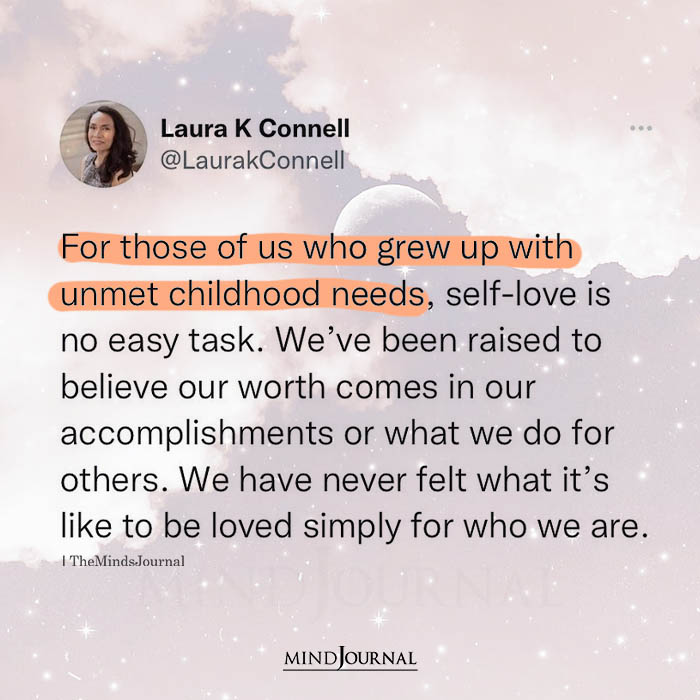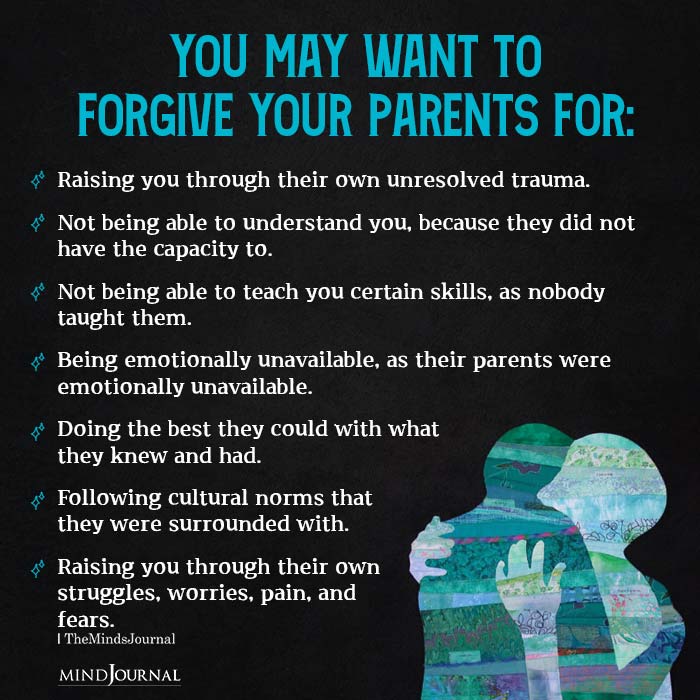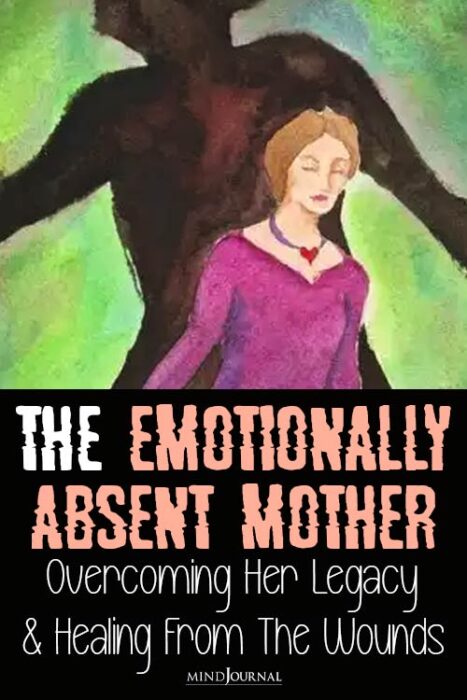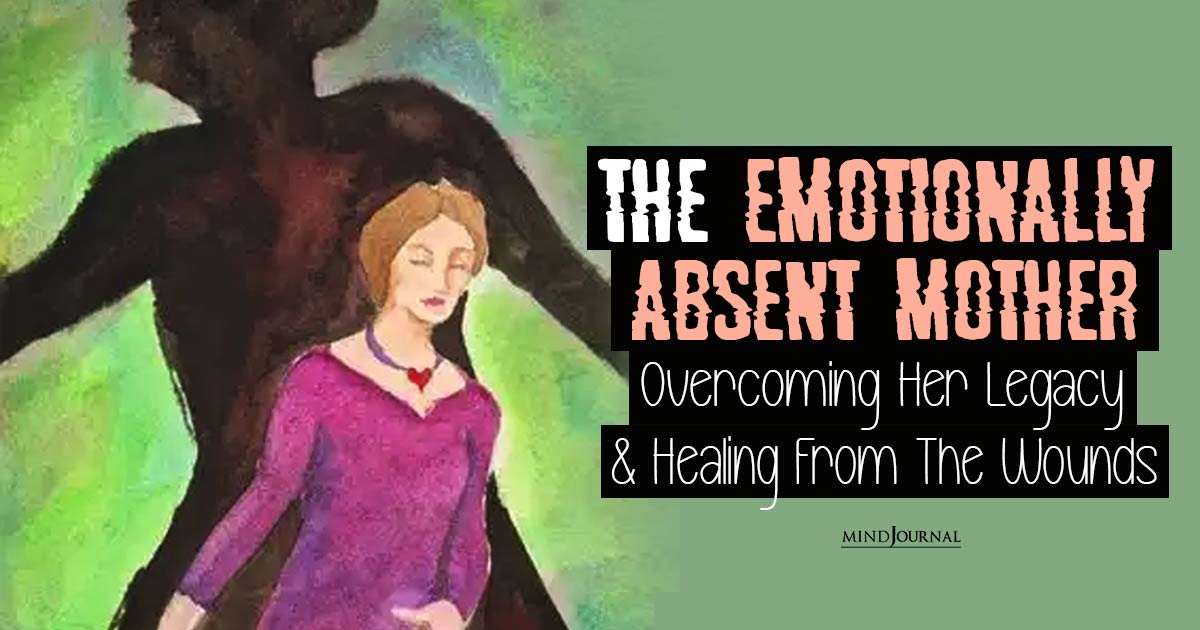Having an emotionally absent mother can take a heavy toll on your mental and emotional well-being, and that too from a very young age. This article is going to explore what it means to have an emotionally unavailable mother, how her emotional absence can affect you and how to heal from it and move on.
Growing up with a mother who wasn’t emotionally available may have complicated your relationship with your emotions. Our early experiences of emotional attunement play an important part in the subsequent regulation of our emotions.
An emotionally absent mother may fail to develop the kind of satisfying attachment bonds in her children that make sustaining ordinary relationships possible.
Such children may come to grow up with a complicated sense of emotional absence in themselves.
Related: 5 Painful Things Daughters Of Unloving Mothers Go Through
An emotionally available mother is attuned to her children
She has an empathic sense of connection to them. All being well this is something that develops in utero: during pregnancy, the anticipation of meeting the child has already set up the foundations of attachment bonds.
‘…our early experiences form characteristic ways of relating to other people and of coping with the ebb and flow of emotions which are not only psychological predilections but also physiological patterns. They are the bones of emotional life….’ – Sue Gerhardt, Why Love Matters
These attachment bonds have the potential to create a sense of emotional belonging in the child. When things go right, the child and the parent internalise a life-affirming sense of each other.
This internalised emotional centre is a powerful resource in times of emotional need. It is like feeling at home within yourself, a kind of emotional inoculation.
By contrast, a child who has developed with an emotionally absent mother may find that negotiating the emotional slings and arrows that are part of growing up and ordinary life is much more difficult. There is no settled sense of emotional home.
Growing up with an Emotionally Absent Mother
If you grew up with an emotionally absent mother you may come to recognise certain emotional deficits in yourself. This may become apparent around issues of attachment and separation. That is something that you can learn to live with, but it takes time and a certain kind of commitment.
Some mothers who have themselves been raised in a climate of emotional absence may have developed a rather compromised sense of themselves. It might be that their capacity to recognise and see their baby or child for who they are, is undermined by their own experiences.
‘I realised I had a particular anxiety around separations. Even when I was with people, loved ones, I would feel anxious about not being close enough to them. I came to see that this was a particular problem of mine. I learned to find a way of containing it and keeping it to myself. But it wasn’t always like that. In adolescence, when I was starting to have relationships, I think it sometimes caused a lot of problems.
‘I would look to the other person to fill the sense of lacking that I felt in myself. I came to see that was a recipe for disaster. I had to see the internal emotional emptiness as something of mine, something that I couldn’t expect another person to fill or settle.’ – Anonymous client

Learning to manage emotions
If you grew up with an emotionally absent mother you may find that you have problems managing your emotional stability. It’s complicated and paradoxical. The experience of being with another person might trigger a sense of emptiness and need that is difficult to live with.
Related: 5 Signs of Mommy Issues In Men and How It’s Impact On Their Adult Lives And Relationships
Emotional absence, addiction and co-dependency
Often this becomes a trigger into addictive and compulsive behaviours as you reach for something that will fill the emptiness, the absence. But often these solutions only create more emotional turbulence.
What you need is to feel emotionally settled and stable, but what gets set off is greater emotional need.
This can create an emotional intensity that is difficult to bear. It can become the basis of co-dependent patterns of relationships. Inadvertently the person with an emotional deficit may compulsively reach out to other people and end up creating more unbalanced and often ultimately toxic relationships.
It is as though, within you there is no emotionally available mother to turn to, not settled emotional base. You are empty.
The Emotionally Absent Mother: Why Love Matters
Sue Gerhardt’s book ‘Why Love Matters – How Affection Shapes a Baby’s Brain’ (2004), laid out a compelling argument that love, from our mother’s or our primary caregivers stimulates the production of hormones that not only stimulate calm and good feeling in us.
They also help with our developing brain chemistry. Love or the absence of love shapes how we are built.
By contrast, if we develop in environments that provoke the production of stress-related hormones, we become more likely to be stressed.
A cycle starts in which stress leads to more stress and our endocrine systems become awash with cortisol, adrenaline, and noradrenaline. These are hormones that set off fight and flight type impulses, they are part of the experience of emotional instability that becomes hard to rebalance.
These hormones sit heavy in our systems and take time to be metabolised.
People who find a way to address and confront their emotional deficits without inflicting them on those around them deserve some credit.
How do we find the strength and emotional resource to deal with our emotional deficits?
‘I found the sense of emotional emptiness difficult to live with. I would be with people and feel alone. It has taken a great deal of patient work to find a way to manage this myself.
Talking in psychotherapy provided me with a confidential place in which I could try to understand what I was going through without any risk of my emotional needs contaminating my relationships.’ – Anonymous client

Coming to terms with an Emotionally Absent Mother
Though emotional security may not have been given to you in childhood, this doesn’t mean that you cannot find a way to live an emotionally satisfying life or go on to develop emotionally nurturing relationships with your own children and partner.
But it might mean that for you this will take work. It takes work to develop a deeper degree of self-knowledge, it is possible.
Related: Emotionally Immature Parents: 7 Signs You Were Raised By One
Breaking the cycle of Emotional Absence and Generational Trauma
One of the remarkable things about learning to live better with the legacy of having an emotionally absent mother is that you don’t hand the pattern of emotional absence onto your children.
By working on this you might break the cycle of one generation handing on emotional absence and trauma to the next. That is very good work to do.
Written By Toby Ingham Originally Appeared On Toby Ingham









Leave a Reply
You must be logged in to post a comment.